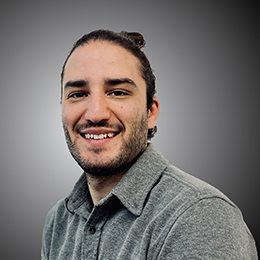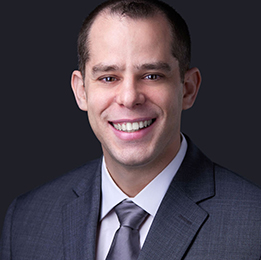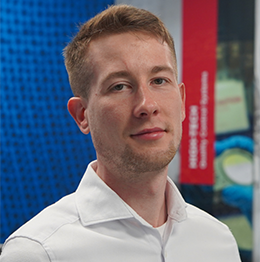Orthopedic companies want to produce high-performance implants with intricate structures and strong mechanical properties. To meet these demands, additive manufacturing suppliers are building devices with bioresorbable polymers, tantalum, bioceramics and advanced metal alloys that improve biomechanics, enhance fixation and help the body heal. Hear from leaders in the field about the benefits of innovative materials and determine which option is best suited for your groundbreaking devices.

Matt Shomper is an award-winning leader in the computational design of advanced 3D-printed medical implants, with over a decade of experience in engineering, research and innovation. He is the founder and principal engineer of Not a Robot Engineering, an engineering consultancy firm. Shomper lends his technical services as a fractional CTO to companies like Allumin8 and Uniphorm. In addition, he is a guest lecturer at Massachusetts Institute of Technology, where he shares his insights and expertise on biomimicry, computational modeling and additive manufacturing.

Craig Rosenblum is the President of Himed. Over 30 years of operation, Himed has become a global leader in calcium phosphate-based biomaterial production and has developed proprietary plasma spray coatings and surface treatments. Craig and his team collaborate directly with dental and medical device manufacturers around the world to provide innovative biomaterial solutions. Under Craig’s leadership, Himed has established the Bioceramic Center of Excellence™, becoming a valuable resource for 3D-printed orthopedic device manufacturers. Craig received his B.S. and M.S. degree in Materials Science & Engineering with a Biomaterials concentration from The Johns Hopkins University (Baltimore, MD). His groundbreaking research explored the variations in the microstructure and mechanical properties of dental enamel. These studies were the first to demonstrate the unique heterogeneous nature of enamel. Craig also serves on The Johns Hopkins University Materials Science & Engineering Advisory Board and is a community manager with 3DHeals, focusing on healthcare 3D printing.

Bryan Naab, Ph.D., is a Research Engineer at Croom Medical, specializing in material testing and additive manufacturing. He holds a Ph.D. in Metallurgical Engineering from University College Dublin, where his work focused on fatigue prediction and advanced materials characterization in additively manufactured Ti-6Al-4V alloys. Dr. Naab has collaborated with one of the world’s leading medtech OEMs and brings extensive research experience across diverse sectors, including the development of biosensors and the processing of ultra-thin glass substrates. At Croom Medical, Dr. Naab plays a key role in a pioneering research project aimed at commercializing an advanced technology platform for manufacturing Tantalum (Ta) using additive manufacturing under the company’s ISO 13485 certification. His work is focused on designing and executing experimental studies to enhance the understanding of process-property relationships in the Selective Laser Melting of Ta.

Scott Taylor, Ph.D., is the Chief Technology Officer at Poly-Med and specializes in material selection and medical device design. He has worked on development teams for more than 20 marketed medical devices and is experienced in the creation of novel materials and processes, product design and development, advanced manufacturing services, application and development of intellectual property, as well as physical and chemical testing protocols. Dr. Taylor has undergraduate degrees in physics and mechanical engineering from Furman University and Clemson University, respectively, and completed his doctorate in Bioengineering from Clemson University. Through his tenure, he has published numerous papers and conference abstracts, several book chapters, and is inventor for more than twenty-five (25) US and international patents. In addition to his position at Poly-Med, he maintains an appointment as adjunct faculty of Bioengineering at Clemson University.